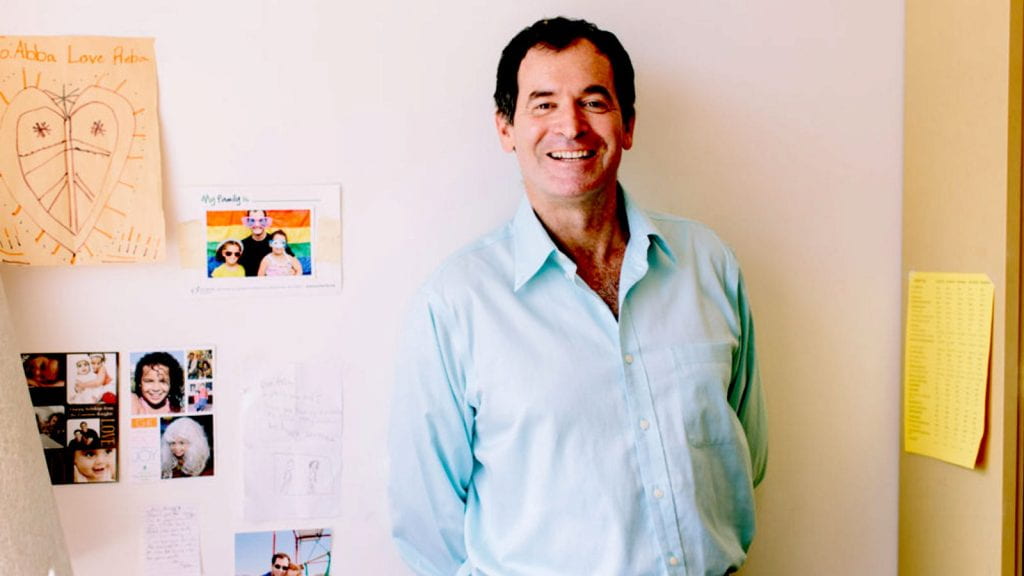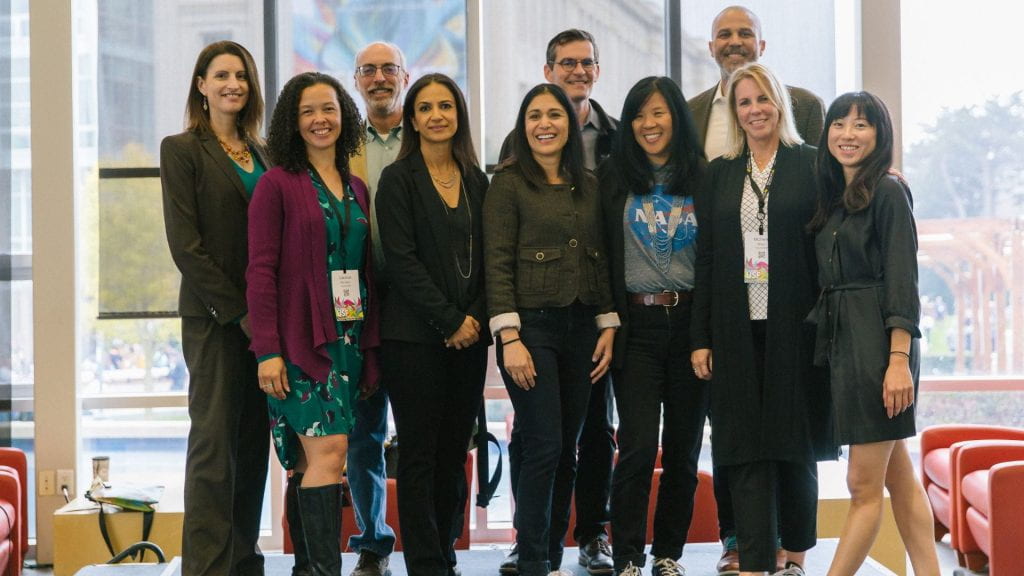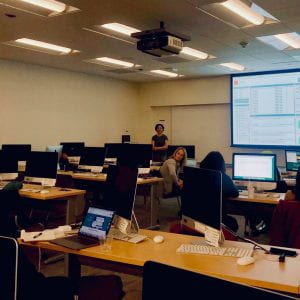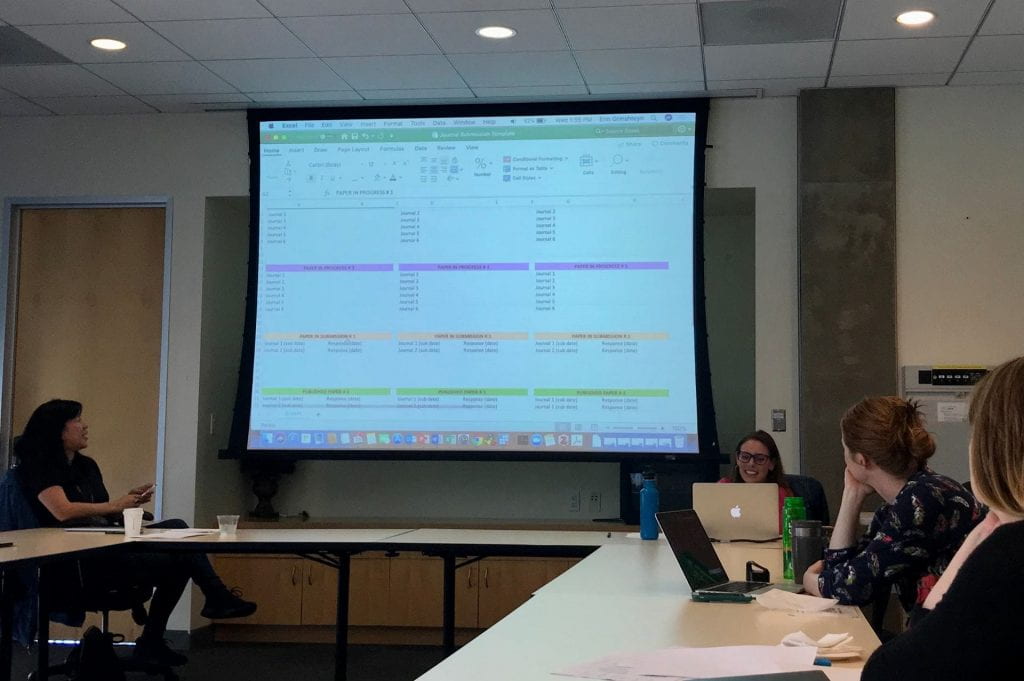Kindred Spirits
Joshua Gamson, Professor of Sociology, reflects on his book Modern Families: Stories of Extraordinary Journeys to Kinship, and he explores self-determination in making of families and expanding our understanding of kinship.

Joshua Gamson, Professor of Sociology,
At the end of my recently published book, Modern Families: Stories of Extraordinary Journeys to Kinship, I began to think through the implications of telling family stories the way I’d done in the previous two hundred pages. In the book, I set out to tell personal, intimate tales of unconventional family creation—via adoption and assisted reproduction; by gay, straight, and trans folks; coupled, single, and multi-parent families—while revealing how they were shaped within and against social, legal, and economic structures. I asked how telling such stories as complex encounters with inequality might allow us to think and act differently rather than telling these stories as individual tales of inventive, dogged pursuits of parenthood.
The stories as I told them point toward an “expansive view of reproductive freedom.” Citing the sociologist and legal scholar Dorothy Roberts, I asserted that “reproductive liberty must encompass autonomy over individuals’ reproductive life—a woman’s choice to end her pregnancy, for instance—but must move beyond that,” to acknowledge and transform the economic and political inequalities that shape family-making decisions. “Reproductive freedom is a matter of social justice,” I quoted from Roberts, “not individual choice.” I noted that a commitment to reproductive justice doesn’t currently inform social policy, though it could, and I basically left it at that.
I don’t disagree with myself, but those bare bones could certainly use some meat on them. I’m trying now to flesh out the connections between reproductive rights in the sense long used by feminist pro-choice activists (the right for women to control their own reproductive lives), reproductive justice in the sense Roberts and other black feminists have articulated (in Roberts’ words, “not only a woman’s right not to have a child, but also the right to have children and to raise them with dignity in safe, healthy, and supportive environments”), and the sorts of family-making inequities I describe in Modern Families. Such inequities are multiple and intersecting, running through and across the stories in the book: The restrictions on family-making due to discrimination and stigma that queer people and single parents often face; the restricted access to assisted reproduction primarily to people, straight or not, with considerable financial resources; the potential and actual exploitation of poor women in the U.S. and elsewhere as paid surrogates; the vast inequalities in the adoption world between countries that “send” children and those that “receive” them, and between individuals who give up kids for adoption or fostering and those that become adoptive parents.
These various aspects of reproductive and family-making politics—which include different life experiences, widely varying positions of advantage and marginalization—are connected by a couple of shared threads. The first is the basic assertion that family justice requires self-determination in making of our families and in the use of our bodies in the creation of kinship, free from coercion and stigma. Clearly, that’s not where we are. When abortions receive no public funding and women’s health clinics are targeted; when adoption statutes and agency practices favor heterosexual couples; when in vitro fertilization is costly and not covered by most insurance; when surrogacy law is an uneven patchwork that requires money and legal assistance to pursue, and often leaves gestational carriers vulnerable; when black families cannot assume that their kids will be safe from state interference and violence; when paid family leave is only a reality for a small portion of the population; when the most effective methods of contraception are prohibitively costly for many: Self-determination about whether, how, and when to make a family is unevenly distributed and unevenly supported. When it comes to the personal, life-changed decisions about having or not having children, and about how to raise them, the most marginalized folks—women in the global South, poor women of color in the U.S.—have a lot less freedom than others.
The second connecting theme is that both culture and policy operate on a very narrow understanding of reproduction and kinship of what two recent critics have called “nuclear family privilege.” Family justice requires an expanded understanding of kinship that goes beyond the nuclear and beyond the biological. As the social change organization Forward Together puts it, most of us “fall outside the outdated notion that a family consists of a mom at home and a dad at work,” yet “too many of the policies that affect us are based on this fantasy.” Policy and resource allocation need to serve families as they really are and to tap into the insights, suppressed by marginalization and invisibility, of diverse family forms. What would family policy look like, for instance, if it centered on the effective ways single women often make use of extended, multigenerational social networks, as so many black, Latino, and working-class families have done for a long time? What would it look like if it built on the combinations of biological and social kinship—sometimes called “chosen families,” “fictive kin,” or “voluntary kin”—that foreground not biology so much as intention, commitment, and reciprocity in the making of family?
These two themes sometimes stand in complicated tension, in part because social class is a central constraint in reproductive and family choices in the United States. So, for instance, while being gay, single, or both means being subject to legal and bureaucratic restrictions in your decision-making, having money can quite easily help you bypass those restrictions—you can pay for adoption or surrogacy services and legal fees. And “family diversity” is expanded through decisions tied to social class: women who place children for adoption, donate eggs, or serve as surrogates for same-sex couples often do so (though not exclusively) because their financial circumstances make such choices rational. Securing reproductive justice for a gestational surrogate in India, not to mention in Indiana, may make it harder for same-sex couples building their family through surrogacy.
These tensions are hard but must be confronted. An expansive approach to reproductive justice certainly brings together disparate experiences of disadvantage. An economically privileged lesbian couple navigates family-making terrain quite differently than an economically marginalized single mother, just as the choice to pursue or terminate a pregnancy is quite different depending on whether you have access to healthcare, whether or not you face the racialized stereotype of single-motherhood-as-irresponsibility, whether you’ve got job security, and so on. But shared across these differences is the same pursuit: the freedom and conditions to make families if we want, when we want, how we want, and with whom we want. The challenge is to link ourselves, in thought and in practice, to those who are absent from our everyday lives but who are also struggling to make family freely, safely, and with dignity. We are, at the very least, political kin.
![INSIDE CRASE [Backup Jan 2021]](http://usfblogs.usfca.edu/crase/files/2018/02/crase_logo-1nupzm8.png)



Josh, Thank you so much for this powerful and thought-provoking piece. I so appreciated reading it and looking forward to reading your book.
I disagree. Look at:
http://jessicaly.me/2016/02/02/kindred-spirits-where-souls-collide-by-chance/